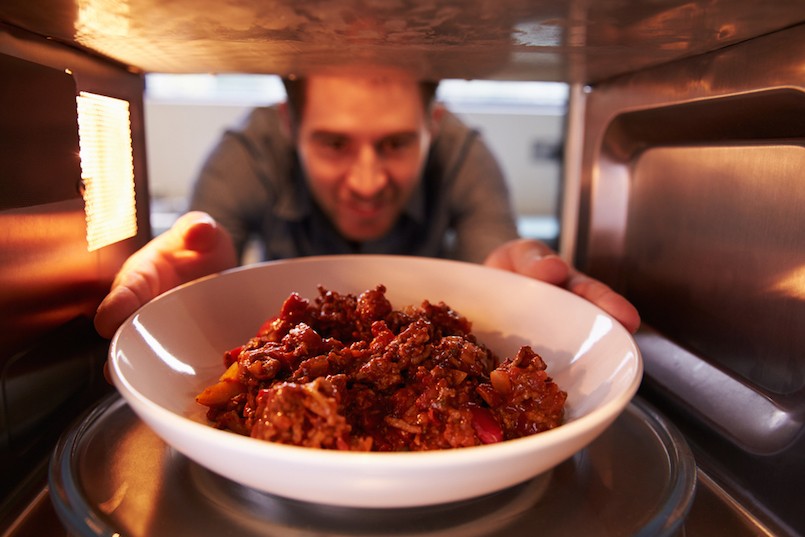
I’ve been nuking food for as long as I can remember, but I’ve always been semi-conscious of the ongoing controversy surrounding microwave ovens. Depending on who you ask, they’re either a harmless convenience or an insidious menace. If health is your top priority (as it should be), then it would be nice to know which side of the debate is right. So what’s the story—is microwaving food really bad for you? And if so, just how unhealthy is it? We’ll get to that, but first you need to understand how the appliance itself works.
The engine of your microwave is a device called a magnetron, which emits a form of non-ionising electromagnetic radiation into the cooking chamber. While that might sound lethal, it’s actually not much different to what you’d see in cellular communications and broadcasting technology. The microwaves excite electrons within the atoms and molecules of your food, and the resulting frictional heat cooks it. That’s great and all, but is the process harmful? Let’s look at some of the common claims:
It Strips Nutrients From Food
The major complaint when it comes to microwaving food is that the process destroys vitamins, minerals and antioxidants, rendering your meal nutritionally-void at best. There’s certainly plenty of evidence to back up this assertion, but the truth is that all methods of cooking destroy nutrients. The important factors to consider are temperature, how long the food is cooked for, and how much liquid is used. In that respect, microwaving is no worse than boiling or high-temperature frying (in fact, it’s probably better). If you’re really concerned about losing nutrients through cooking, try to get more fresh/raw fruits and vegetables into your diet.
It Makes Your Food Carcinogenic
Most microwavable foods come in disposable packaging made from some form of plastic, which can leach harmful chemicals into your food when heated. One such chemical is BPA, a particularly dangerous contaminant that can interfere with hormone activity and contribute to infertility, allergies, high blood pressure, cardiac disease and weight gain. You’ll probably want to avoid all that, so make sure you only use microwave-safe containers (go for glass or ceramic) when heating your food. If you insist on eating made-for-the-microwave junk, transfer it from its plastic wrapping to something safer and adjust your cooking times to suit.
The Radiation Affects You
Like I said before, the radiation from your microwave is not much different to that of your cell phone, tablet or satellite dish, and manufacturers have to adhere to tight regulations when it comes to emissions. Most of us don’t lay awake at night wondering whether our laptops are frying our testicles, so we shouldn’t be overly concerned about the impact our microwaves are having either. If you’re still a little freaked out, just stand away from the microwave while it’s running, and periodically check it for cracks and loose door hinges.
Verdict: Is microwaving food bad for you? Yes. Is it lethal, or even any worse than other methods of cooking? Probably not. As long as you’re using fresh or frozen ingredients, safe containers made of glass or ceramic, minimal liquids and short cooking times, there’s no reason you can’t enjoy the occasional zapped meal.
Q: How do you feel about microwaving food? Give us your thoughts in the comments below.


